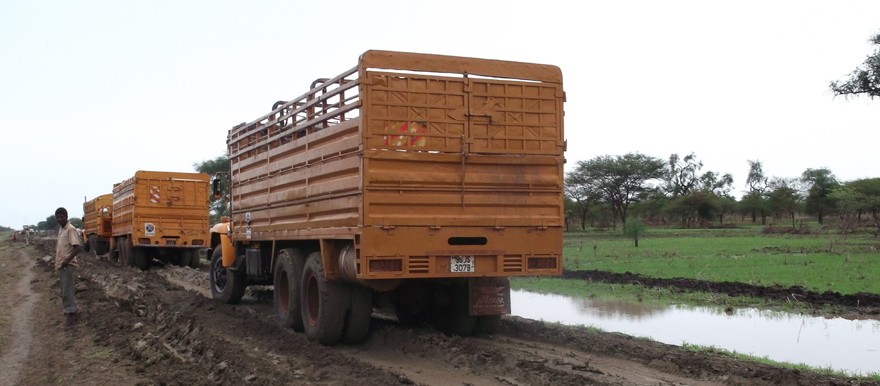The World Food Programme announced that it has been unable to bring food to 125,000 refugees in Maban County, Upper Nile State. The aid agency is calling on the warring parties in the country to allow food to reach the hungry refugees.
This follows recent fighting in Renk County, the northernmost part of the state and the route on which food can be brought via Sudan. Deliveries from the south via Malakal have also been impossible owing to the closure of river trade on the Nile.
WFP was forced to reduce food rations to refugees in March and April. Already the malnutrition rate among refugee children in all four refugee camps in Maban County is approaching 15%, according to UNHCR.
Cosmas Chanda, UNHCR Representative in South Sudan, underscored the urgency of pre-positioning adequate food supplies for the coming six months, saying, “Roads to Maban are facing imminent closure for the duration of the rainy season, which has already started.”
In a statement today, WFP said, “There is still time to deliver stocks of food by road, with massive economies of scale, if safe access is guaranteed. Without access by road, costly air operations will become the only recourse for providing urgently needed humanitarian assistance.”
WFP also reported that refugees are already resorting to “negative coping mechanisms” like selling off household items, and burning wood meant for building latrines to produce charcoal for sale.
The UN food agency will this week distribute the last remaining food stocks in Maban County to refugees in the camps. These food rations will last the refugees less than a week, according to the press statement, which means they will have to use airdrops beyond that in order to supply the refugee camps.
File photo: Trucks are halted by mud on a road in Maban County, June 2012. A rapid influx of refugees to the county in the early rainy season of 2012 caught aid agencies by surprise and resulted in a huge spike in child mortality rates (Radio Tamazuj)




